Ebola Information & Local Situation Update
Posted October 22, 2014 by NCHD Admin
What do you need to know about Ebola? The North Central Health District wants to make sure all of our residents have access to the latest information from the Centers for Disease Control and Prevention (CDC) as well as the Georgia Department of Public Health (DPH). We will update this page weekly unless there are significant changes to the information contained below.
To sign up for notifications when this page is updated, please fill out the form below.
What:
- Ebola hemorrhagic fever is an often fatal disease found in humans and other primates
- First discovered in 1976 in the Democratic Republic of Congo and has NOT mutated since
Where:
- West Africa (Particularly in Liberia, Sierra Leone, Guinea, and Mali)
- Nigeria and Senegal declared Ebola-free (Monday, 10/20)
- United States (only two cases were acquired locally)
- There are NO cases reported or suspected in the North Central Health District
How:
- Spread through direct contact with blood and body fluids of infected person (urine, feces, saliva, vomit, sweat, semen)
- Contaminated objects (needles, etc)
- NOT spread through air, water, or food
Symptoms:
- Fever
- Severe headache
- Muscle pain, vomiting, diarrhea, stomach pain
- Unexplained bleeding or bruising
Incubation Period:
- 2-21 days, average 8-10 days
- A person with Ebola cannot spread the disease until symptoms appear
How to Protect Yourself:
- Wash your hands with soap and water or alcohol-based sanitizer
- Do not touch the blood or bodily fluids of a sick person
- Do not handle items (needles, bedding, medical equipment) that have come into contact with a sick person
- Do not touch the body of someone who has died from Ebola
If You’ve Been Exposed:
- Take your temperature every morning and evening
- Watch for symptoms throughout the 21 day period
- Call your doctor to inform them of exposure (regardless of if you are showing symptoms)
Treatment:
- At this time there is NO vaccine or medication to treat Ebola
- Basic treatment includes providing IV fluids, maintaining oxygen status and blood pressure, and treating any other infections
National Response:
- Five airports screening overseas travelers from affected areas (JFK in NY, Newark in NJ, Washington Dulles, O’Hare Int’l in Chicago, Hartsfield-Jackson in ATL)
- State and local health departments have been asked to track any visitors coming to our country from the affected countries. Their temperatures will be recorded daily and they will be monitoring any symptoms for 21 days from the date of their arrival.
Information about Ebola can also be found on the Georgia Department of Public Health website at www.dph.ga.gov/Ebola as well as the CDC’s website at www.cdc.gov/Ebola. All of the guidance documents can be found at one or both of these pages.


 Contact Us
Contact Us Locations
Locations Job Openings at North Central Health District
Job Openings at North Central Health District Internships
Internships Board of Health
Board of Health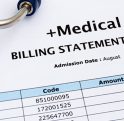 Cost and Insurance
Cost and Insurance Privacy Policy
Privacy Policy Teens & Adults
Teens & Adults For Children
For Children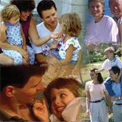 Other Programs
Other Programs County Environmental Health Offices
County Environmental Health Offices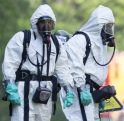 Chemical Hazards
Chemical Hazards Tourist Accommodations
Tourist Accommodations Food Service
Food Service Rabies Control
Rabies Control Lead Poisoning Prevention
Lead Poisoning Prevention Body Art
Body Art Land Use
Land Use Swimming Pool Program
Swimming Pool Program Water Testing for Private Wells
Water Testing for Private Wells Environmental Health Complaints
Environmental Health Complaints Georgia Food Recall Alerts
Georgia Food Recall Alerts Personal & Family Preparedness
Personal & Family Preparedness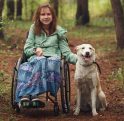 Emergency Preparedness for Functional & Access Needs
Emergency Preparedness for Functional & Access Needs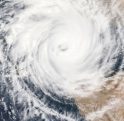 Severe Weather Preparedness
Severe Weather Preparedness Emergency Preparedness Training
Emergency Preparedness Training Medical Reserve Corps
Medical Reserve Corps Regional Healthcare Coalitions
Regional Healthcare Coalitions Strategic National Stockpile/Medical Countermeasures
Strategic National Stockpile/Medical Countermeasures